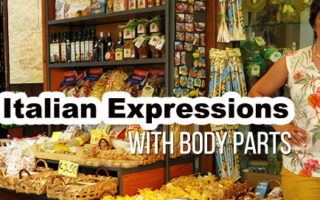We all know how important food is to Italians. It goes beyond passion. It begins in the morning when Italians get up and think about what to eat for lunch, as if getting the ingredients were just as crucial as brushing teeth, so it comes with no surprise that the Italian language has a large number of food-related idioms.
Here are some!
1) Finisce tutto a tarallucci e vino. (It all ends with taralli and wine)
Taralli are a traditional biscuit – savory or sweet – from Southern Italy, very cheap to produce, plain but tasty, normally served at the end of the dinner with a glassle of wine.
It is used to say that you or your friend solved a complicated situation with a good and pacific compromise that in the end protected the interests of both parts.
Sometimes this has a negative connotation in politics because it may mean that the person that was guilty of something, in the end has not been punished the way he/she was supposed to.
2) Vuoi la botte piena e la moglie ubriaca. (You want the barrel to be full and the wife to be drunk)
It means you want both things, as in you can’t have your cake and eat it.
3) Dobbiamo dire pane al pane e vino al vino. (We have to say bread to bread and wine to wine)
This means you should report and say things the way they are, and being objective about it. If we have bread, then we have to call it bread, we can’t say it is pizza just because we want it to be pizza – unofrtunately.
4) Ridi, ridi, che mamma ha fatto gli gnocchi. (Laugh, laugh, mum made gnocchi)
If you have done something and someone is laughing at you, you will use this one to say that there is nothing to laugh about it. Because, honestly, if our mum has made gnocchi what is there to laugh about?
As the idiom suggests, many Italian mums – so does mine! – make fresh gnocchi, normally on Sunday.
5) Rendere pan per focaccia. (To give back bread for focaccia)
… or get revenge.
That’s all for now, I hope you enjoyed my post and stay tuned for some more to follow soon!




